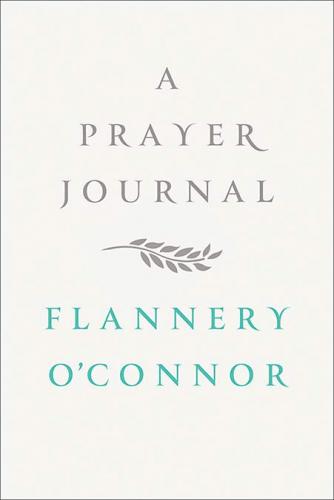|
|||
|---|---|---|---|
| This weekly bulletin insert complements the curriculum published by the Department of Christian Education of the Orthodox Church in America. This and many other Christian Education resources are available at http://dce.oca.org. | |||

Proverbs 15: 24 tells us: "For the wise the path of life leads upward, in order to avoid Sheol below". These words might be applied to the writer Flannery O'Connor, whose "path of life" was brief but led upward, as she tried always to come closer to God. Mary Flannery O'Connor was born in 1925 in Savannah, Georgia, and wrote about the South. She was a devout Roman Catholic, and her writing is infused with Christian faith, but not in an obviously didactic way. She wrote fiction, and created some of the most memorable and often bizarre characters in American literature. Some people in her stories are obsessive, consumed by thoughts and questions about God. Others are charlatans, mouthing religious platitudes to con gullible people and get something out of them. Still others receive life-changing revelations that come abruptly, jarringly. The reader is not always comfortable in the encounter with these stories. But they will lead any attentive person to reflect on what it means to live in a world filled with God's grace, coming in unexpected forms. As O'Connor wrote, "Grace changes us and change is painful." "A Prayer Journal" is the newly-published series of entries in a journal kept by Flannery O'Connor between January 1946 and September 1947. She was twenty, and was attending writing workshops in Iowa City, Iowa. Her temporary home was a simple dormitory room. She had her typewriter, paper and pencils and a hotplate; her refrigerator was the window sill. The word "prayer" in the title is apt, because the journal is in part about learning to write, but is mostly a series of prayers. Flannery O'Connor wanted to be "the best artist it is possible for me to be, under God." She asked God to help her to be an artist, and to "please let it lead to You." As she was keeping the journal she was also reading Catholic spiritual writers such as Leon Bloy, a 19th-century poet and essayist who has been quoted by Pope Francis. Flannery O'Connor struggled, as many writers do, with her ambition. She wrote, "I want very much to succeed in the world with what I do," and "I do not mean to be clever although I do mean to be clever on 2nd thought and like to be clever & want to be considered so." But at the same time she wanted to make God, rather than ambition, the center of her life: "I do not know You God because I am in the way. Please help me to push myself aside." 
The prayers in this small book are inspiring, because O'Connor is serious about her faith but candid about her perceived shortcomings, and unwilling to settle for mediocrity. We see in the entries the growing artistry of someone who would become a celebrated writer, even though lupus ended her life at age 39. Proverbs 16:3 seems to sum up both her effort and her achievement: "Commit your work to the Lord, and your plans will be established." |
|||
